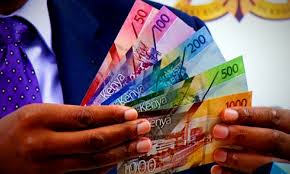
CBK Lists Cheapest And Most Expensive Banks In Kenya
In the most recent regulatory disclosure, it is evident that smaller financial institutions like First Community Bank (FCB), Ecobank of Kenya, and HF Bank take the lead in providing lower interest rates. Contrarily, renowned players such as Absa and Equity Group find themselves listed among those charging the highest rates. The Central Bank of Kenya (CBK) data on the average lending rates commercial banks offer show 27 of the 39 commercial banks have raised their overall rates in the three months to March.
The review puts the lowest rate at nine percent (FCB) and the highest at 17.6 percent (Credit Bank). The highest rate was 14.6 percent (Sidian) in December. FCB, a shariah-compliant lender that was in March cleared to sell 62.5 percent stake to Premier Bank Limited of Somalia, had a uniform rate of nine percent for personal, business and corporate loans.
Ecobank Kenya follows with an average rate of 10.7 percent while HF and Access Bank Kenya follow with 11 and 11.2 percent respectively.

Leading the chart with higher rates is Credit Bank, boasting an average loan rate of 17.6 percent. Following closely behind are Middle East Bank at 16 percent and Sidian at 14.9 percent.
Absa and Equity Bank Kenya, the country’s most profitable lender, secure the sixth and seventh positions, with average interest rates of 14.2 percent and 14.1 percent respectively.
It’s important to note that the disclosed rates from these banks to the CBK do not encompass additional costs such as negotiation fees, legal fees, and insurance, which typically contribute to the overall cost of loan servicing.
Banks usually post a breakdown of other fees on a website that was developed by the Kenya Bankers Association (KBA) and the CBK to enhance transparency.
Lenders that are more into personal and SME banking tend to charge more fees because the loan itself is smaller when compared with corporate loans.
Lenders with many repeat customers sometimes trim fees on subsequent loans.
Absa will adopt the risk-based pricing model on loans in the second half of the year after obtaining the CBK’s nod last year.

Equity had in January informed customers that it was reviewing its lending rates to between 12.5 percent and 21.02 percent after it started implementing the risk-based pricing in an environment of rising benchmark rates.
At the end of March, the CBK raised its benchmark lending rate to a five-year high of 9.5 percent from 8.75 percent as a counter-inflation measure that set the stage for costlier loans.
The intention behind the substantial rate hike was to alleviate credit demand in an effort to control inflation, which decreased from 9.2 percent in March to 7.9 percent in April. However, inflation has persistently exceeded the government’s targeted upper limit of 7.5 percent for the past 11 months.
A new meeting of the CBK is scheduled for today (Monday), while the KBA has urged the regulator to maintain the benchmark rate without any changes.
Despite the prevailing economic challenges leading to an increase in defaults, banks have capitalized on the higher benchmark rates to raise their interest rates.

In February, the average lending rate of commercial banks surpassed 13 percent for the first time since July 2018, reaching an average of 13.06 percent, compared to 12.7 percent in December. This upward trend in interest rates continues.
Interest rates are tipped to reset higher this year due to the increased adoption of risk-based pricing with more than 25 commercial banks having begun reviewing the cost of loans based on borrower risk profile.
KCB Group, whose approval is pending, disclosed during the release of first-quarter results that it had got CBK approval allowing KCB Kenya and National Bank of Kenya (NBK) to price loans depending on risk levels.
The CBK data shows KCB was by the end of March averaging Sh12.3 percent, making it the lender with the ninth friendliest price of loans alongside Standard Chartered Bank of Kenya which averages the same rate.
KCB Kenya’s loan book hit Sh654.7 billion in March from Sh613.9 billion in December, making the volume the largest in the market after Equity which closed the quarter with Sh448.9 billion.
Co-op Bank averaged 12.9 percent in the review period, alongside NBK and Prime Bank while NCBA and I&M hit 13.6 percent.





